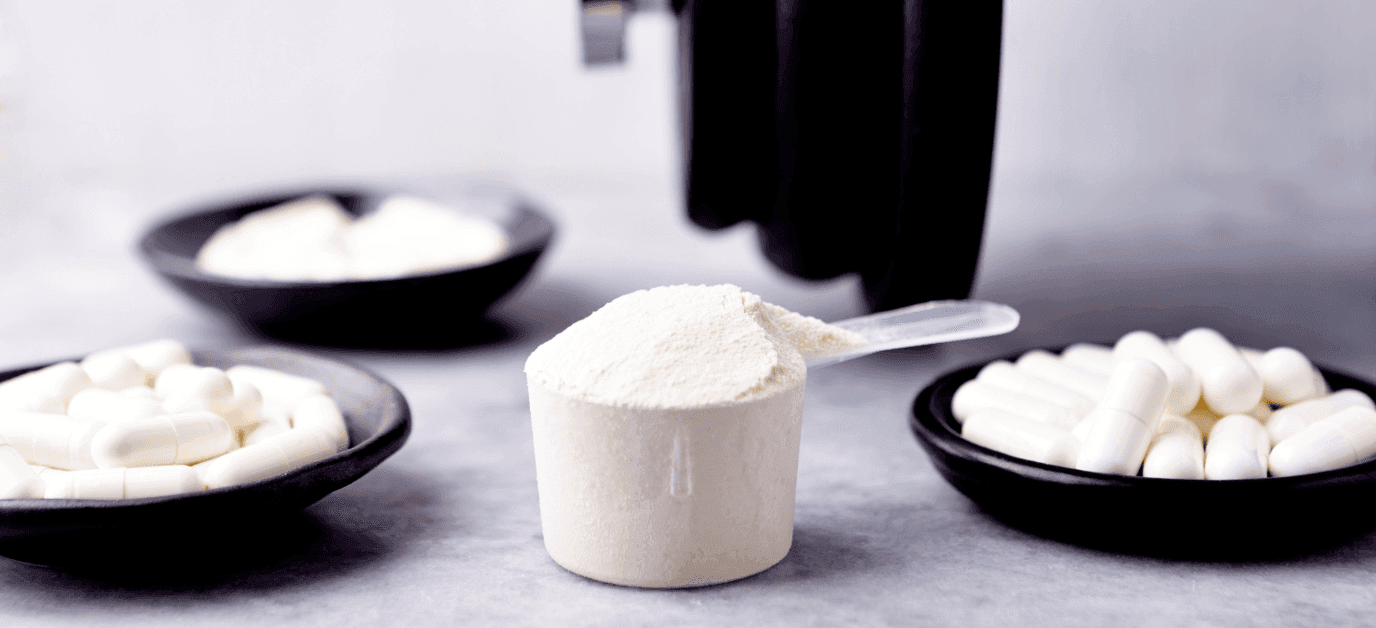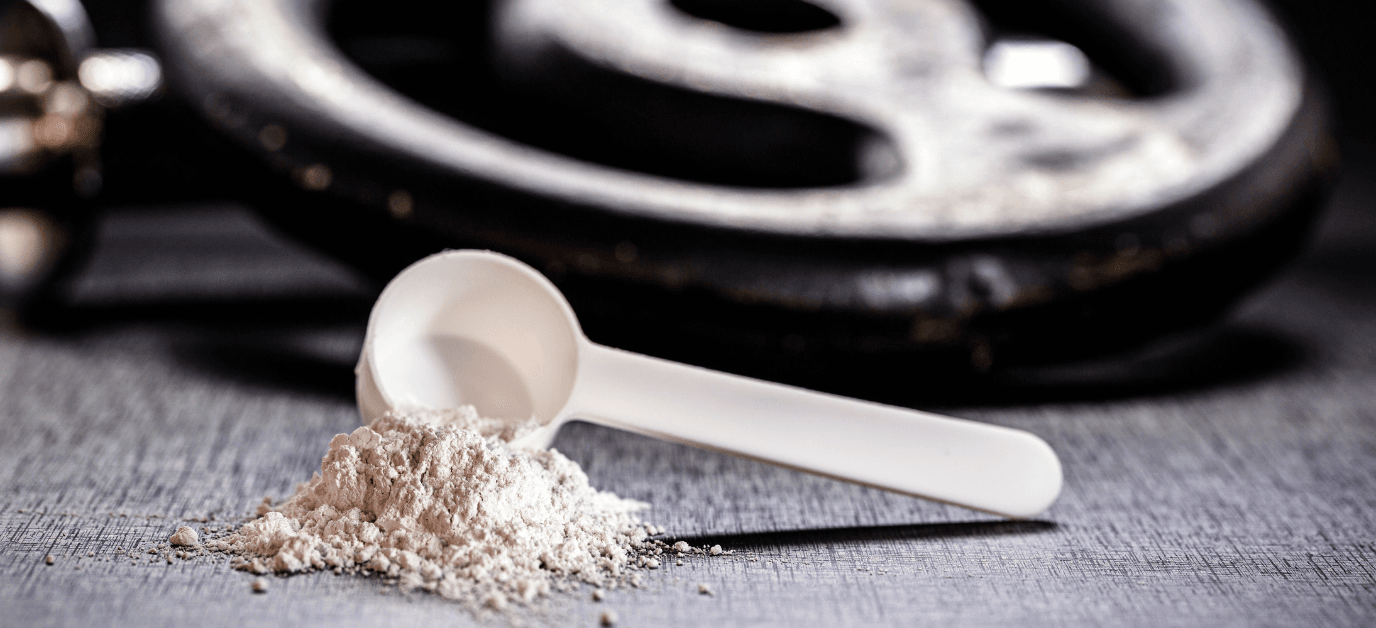

Myth or fact: Does Creatine influence muscle mass growth?
03.10.2024Creatine is one of the most popular dietary supplements on the market, having gained significant popularity among professional athletes as well as gym-goers. Due to its widespread use, there are many myths about its effects. In this article, we’ll clear up the confusion around what creatine is and see whether it truly influences muscle mass growth.
What is Creatine?
Let’s start with the basics. Creatine is a compound naturally found in the human body, primarily in skeletal muscles. It’s made from three amino acids: arginine, glycine, and methionine. Our body uses creatine to resynthesize ATP (adenosine triphosphate), the main source of energy for muscles, especially during short, intense efforts like sprints or weightlifting.
Does Creatine Really Affect Muscle Mass Growth?
The answer is yes, and not only based on athletes' opinions but also numerous scientific studies. Creatine increases the amount of phosphocreatine in muscles, which leads to greater energy levels during intense workouts. [1] This allows you to train harder and for longer, which ultimately leads to an increase in muscle mass.
According to research published in the Journal of Strength and Conditioning Research, individuals using creatine, combined with strength training, experienced significantly greater muscle mass gains compared to a placebo group. [2] Creatine also stimulates muscle protein synthesis, which is essential for muscle recovery and growth.

The Myth of "Artificial" Muscle Mass
One of the myths surrounding creatine is that it only causes an increase in "artificial" muscle mass through water retention. While it's true that creatine increases muscle hydration, this is not its only effect. The anabolic mechanisms mentioned above lead to real muscle mass growth, not just a visual effect caused by water retention.
It’s worth noting that the “pumped” muscle effect may be more noticeable at the beginning of supplementation. Some users experience a noticeable weight gain just days after starting creatine use, which is mainly due to a sudden increase in water within the muscles. However, in the long run, muscle mass gain is real and persists even after stopping creatine use.
Who Can Benefit from Creatine?
Creatine is a safe and well-studied supplement. It’s suitable for people looking to improve their athletic performance, build muscle mass, or increase strength. Interestingly, its positive effects are observed not only in athletes but also in older adults, where creatine supplementation can counteract muscle mass loss associated with aging. [3]
Some studies also suggest that creatine has a positive impact on brain health. Creatine supplementation may improve short-term memory and intellectual abilities, especially under stress or sleep deprivation. For example, research published in Psychology Today indicates that creatine may support cognitive functions, which is particularly important for older individuals and those under stress. [4] Furthermore, studies in Frontiers in Aging Neuroscience show that creatine may support cognitive functions and improve reasoning abilities, which can benefit older adults.[5]
Many women fear that creatine supplementation will lead to excessive muscle growth, which is often associated with men. However, it’s important to note that this supplement does not automatically increase muscle mass; its effects depend on the type and intensity of training. Women looking to improve physical performance and build a lean physique can safely use creatine.
It should also be mentioned that creatine supplementation can be particularly beneficial for those following vegan and vegetarian diets. Natural sources of creatine, such as meat and fish, are excluded in these diets. Therefore, supplementation can be an excellent way to increase creatine levels in the body. Higher creatine levels are crucial for improving physical performance and supporting recovery processes, which can significantly contribute to achieving better results in physical activity.

How to Use Creatine?
The most popular form of creatine in the supplement world is creatine monohydrate, which is also the most effective. A daily dose of 3-5 grams is usually recommended. There’s also the so-called loading phase, where 20 grams of creatine are taken for the first 5-7 days, but this isn’t necessary – the same effects can be achieved by taking smaller doses over a longer period.
[1] Volek, J. S., & Rawson, E. S. (2004). Dietary supplements for performance enhancement in high school athletics. Journal of Athletic Training, 39(3), 333-343.
[2] Kreider, R. B., Melton, C., & Greenwood, M. (1998). Effects of creatine supplementation on performance and training adaptations. Journal of Strength and Conditioning Research, 12(3), 190-197.
[3] Cree, M. G., Phillips, S. M., & Wolfe, R. R. (2012). Creatine supplementation and age-related muscle loss: A review of the evidence. Nutrition Research Reviews, 25(1), 29-39.
[4] Parker, T. (2023). Should you take creatine to boost your brain? Psychology Today, https://www.psychologytoday.com/us/blog/the-modern-brain/202311/should-you-take-creatine-to-boost-your-brain
[5] McMorris, T. (2019). Effects of creatine supplementation on cognitive performance. Frontiers in Aging Neuroscience, https://www.ncbi.nlm.nih.gov/pmc/articles/PMC6093191/

